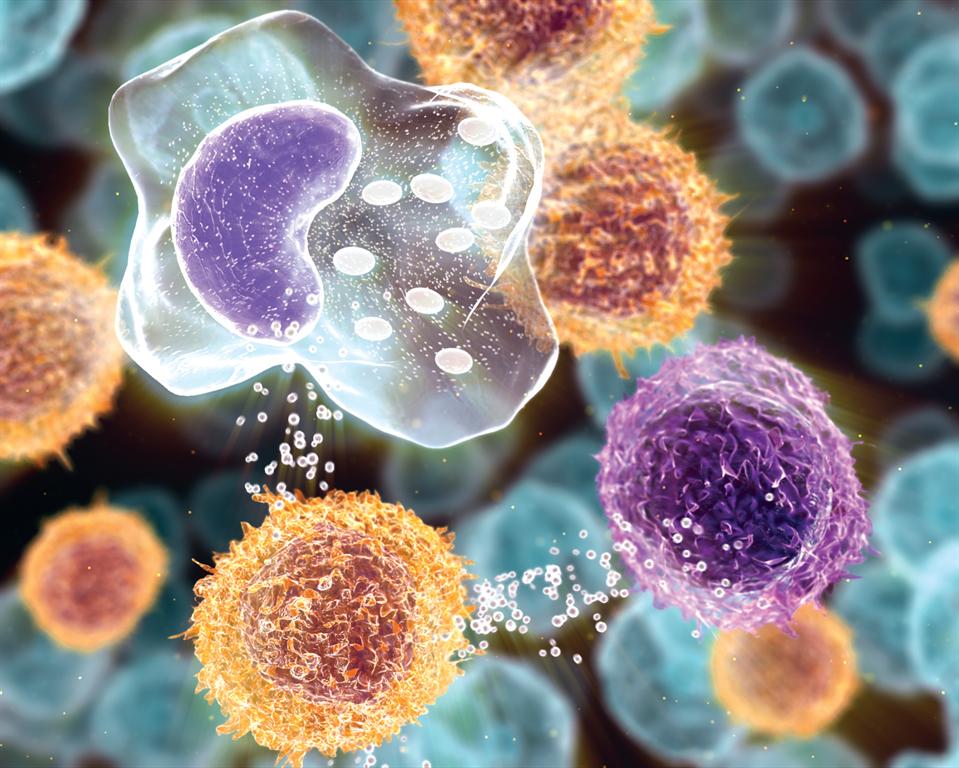Kallaur AP, Oliveira SR, Colado Simão AN, Delicato de Almeida ER, Kaminami Morimoto H, Lopes J, de Carvalho Jennings Pereira WL, Marques Andrade R, Muliterno Pelegrino L, Donizete Borelli S, Kaimen-Maciel DR, Vissoci Reiche EM. Cytokine profile in relapsing‑remitting multiple sclerosis patients and the association between progression and activity of the disease.Mol Med Report. 2013 Jan 2. doi: 10.3892/mmr.2013.1256.
Multiple sclerosis (MS) is a progressive immune‑ mediated disease caused by demyelination of the central nervous system. Cytokines and their receptors have an important role in the evolution of MS lesions, and pro‑ and anti‑inflammatory cytokine levels have been found to correlate with changes in MS disease activity.
The aims of the present study were to evaluate the pro‑inflammatory [tumor necrosis factor (TNF)‑α and interleukin (IL) ‑1β, ‑6 and ‑12], T helper (Th) 1 [interferon (IFN)‑γ], Th17 (IL‑17) and Th2 (IL‑4 and ‑10 but also B cell growth factors) cytokine serum levels in relapsing‑remitting (RR)‑MS patients and to evaluate the association between the cytokine profile and the progression and activity of the disease.
Serum cytokine levels were assessed using enzyme linked‑immunosorbent assays in 169 RR‑MS patients in the remission clinical phase and 132 healthy individuals who were age‑, gender‑, ethnicity‑ and body mass index‑matched. Disability and activity of the disease were evaluated using the Expanded Disability Status Scale and magnetic resonance imaging with gadolinium, respectively.
RESULTS: IFN‑γ and IL‑6, ‑12 and ‑4 levels were higher in RR‑MS patients compared to controls (P=0.0009, 0.0114, 0.0297 and 0.0004, respectively). IL‑1 levels were higher in controls compared with RR‑MS patients. IL‑4 levels were higher in RR‑MS patients with mild disability compared to those with moderate and severe disability (P=0.0375). TNF‑α and IL‑10 levels were higher in RR‑MS patients with inactive disease compared with those with active disease. IL‑17 levels showed a trend towards being higher in RR‑MS patients with inactive disease compared to those with active disease (P=0.0631). Low TNF‑α and high IFN‑γ levels were independently associated with RR‑MS (P=0.0078 and 0.0056, respectively) and also with the activity of the disease (P=0.0348 and 0.0133, respectively). Results indicated that RR‑MS patients, even in the remission clinical phase, exhibit a complex system of inflammatory and anti‑inflammatory cytokines that may interact to modulate the progression and activity of the disease.
Without additional MRI activity is is difficult to say that an MSer in clinical remission is in remission because for every clinical attack there may be 10 or more lesional events. However if active cytokines are found in the blood it means they are in excess as they should be hoovered up by their receptors, so are they important it is difficult to say.

0 comments:
Post a Comment